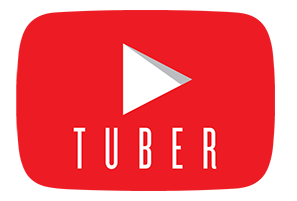Have you ever felt your small business’ customers were sharks?
Have you ever felt like your prospects are sharking—I mean shopping—on cost, as well as always talking you down on price? Do you feel like the only nibbles you get are from prospects looking to get the best deal they can?
Managing prospects who are only out to get the best deal they can, or “price sharks,” frustrates a lot of business owner. Finding your business frequently in this position may seem coincidental. However, there is perhaps an explanation why you attract price sharks and bargain hunters.
Let’s take a closer look, starting with your company’s brand image and your marketing materials.
Having a strong business brand, website and collateral materials is an effective repellent against price-shopping sharks. All of this is based on perceived reality: if price sharks perceive (based on what they see from your online promotional videos, marketing collateral, etc.) that you are a leader in your industry, they’ll probably look for bargains from your competitors first. This is perceived value prospects get based on what’s in front of them, and it is created through marketing and design.
No one walks into a Lexus dealership thinking, “I’m really going to be able to talk this sales rep down on price,” and no one would expect to pay less for a bar of Ghirardelli chocolate than a Baby Ruth. Price sharks really looking for a bargain will almost always steer clear of companies that have a top-shelf, professional business identity and marketing materials. It would be like a shark going after a killer whale for food—the shark could try it, but it would be easier to go after something a little more practical, like a slow swimming fish.
Compare and Contrast Scenario:
Price sharks love to compare and contrast companies, in fact we all do this whether we know it or not. Let’s say for example that you attended a business-networking event—during which you receive three business cards from local real estate professionals. Card one was printed on an office printed (you know, with the perforated edges). Card two looks like it was printed at one hour quick copy place, and card three is a top-notch professionally designed card that features a realtor with a distinct brand image.
- Who is more likely to take their business seriously, card one, two, or three?
- Who do you think is probably the professional of the three? Who’s the rookie or hobbyist?
- Who would you go to if you really wanted a steal….I mean deal?
- Which realtor do you think price sharks will feel they can get a deal from?
- Which realtor do you think price sharks will see as the cheapest?
If you’re like me, and like most people, you’ll guess that the realtor with card number one is going to offer the cheapest price.
Will it always be the correct guess? No, but in this example, realtor one will receive most of the price sharks because of her/his business image. Remember, this is all PERCEIVED.
In this example, all of the realtors might charge the same commission—we don’t know. But keep in mind that, “perception is reality,” and if prospects perceive one to be cheaper than another, whether or not it’s true, is another matter.
The Bottom Line for Smart Business Owners:
The fact is, companies with better, more attractive and effective business brands consistently outperform those that don’t. Having a professional brand and top-notch marketing materials is like having shark repellant for prospects that are out there trying to get good deals. Prospects know that are more likely to get a bargain from business that don’t look like they are leaders in the industry.
If you’re attracting price sharks and bottom feeders, there might be a logical reason for it. If this does happen to you, first look at your company business brand: your logo and your marketing and advertising.
Be honest, if you saw this marketing collateral, would you expect the company is cheap or expensive based on what you see?
